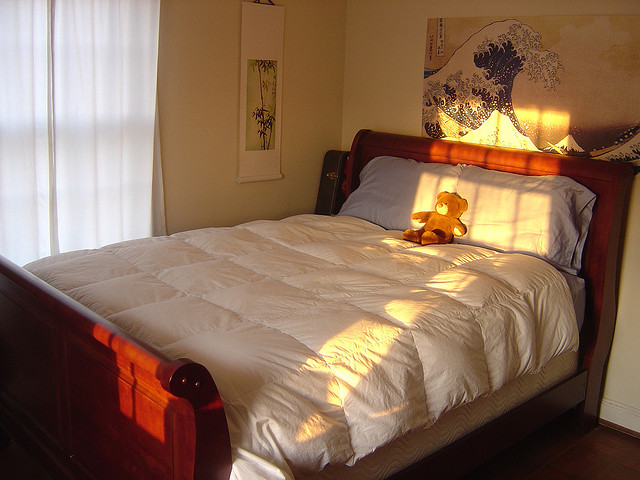About 15 percent of children over 3 years old struggle with bed wetting, otherwise known as enuresis. The majority of them deal with primary enuresis, meaning that children haven’t developed bladder control at night, accidents occur at least twice a month, and they are not triggered by stressful situations.

Facts About Bed Wetting
It’s important for parents to know all the facts so they can help their child and get the best treatment options, including a bed wetting alarm.
- Bed wetting is not your child’s fault and often occurs because they are such sound sleepers and can’t wake themselves to go to the bathroom.
- Only around five percent of primary nocturnal enuresis has an underlying medical or emotional reason. Secondary nocturnal enuresis involves emotional stressors like a parents’ divorce or a recent move, and involves no accidents for six months and starting up again.
- Bed wetting often runs in families. If both parents struggled with bed-wetting, there’s around a 75% percent chance your child will too, while if only one parent did, there’s still around a 40 % chance your child may wet the bed too. If neither parent had issues, this lowers the likelihood to around 15 percent.
- Researchers have identified that certain genes, ENUR1 and ENUR2, affect nighttime enuresis and how often your children needs to urinate and how easily they can be awakened.

Tips For Dealing With Bed Wetting
- Reassure your child that this is not their fault and avoid criticizing or teasing them. Avoid using punishments as that will only make them more nervous but do praise them if they successfully have a dry night.
- Encourage your child to drink fluids earlier in the day and limit fluids later in the day, especially water before bedtime, and caffeinated beverages. These increase the amount of urine produced, making more nighttime trips to the bathroom.
- Remind your child to use the bathroom right before bedtime.
- Try waking your child once or twice during the night to empty their bladder.
Treatments For Bed Wetting
Early intervention is important as enuresis can become expensive with extra loads of laundry, as well as disposable training pants. Medications are also costly and sometimes ineffective, and your child may become embarrassed to attend sleepovers or camp-outs because of their issue.
Therefore, a new idea known as a bed wetting alarm has become popular. They are among one of the safer treatments and children that use them are around 12 times more likely to stay dry throughout the night than those who don’t use them. These alarms feature a moisture sensor that is placed by your child’s underwear and can detect the first sign of wetness. It signals a lightweight alarm which can be clipped to the shoulder or collar on their pajamas. Depending on what works best for your child, you can choose a rapid succession of beeps or sounds or melodies to be played on the bed wetting alarm.
At the beginning, you will probably have to awaken with your child and have to almost sleep-walk them to the bathroom, but it will get easier. If you try this method, it’s beneficial to attempt it over summer vacation or a long winter break as it takes several weeks to learn a new habit and even longer until it becomes routine.